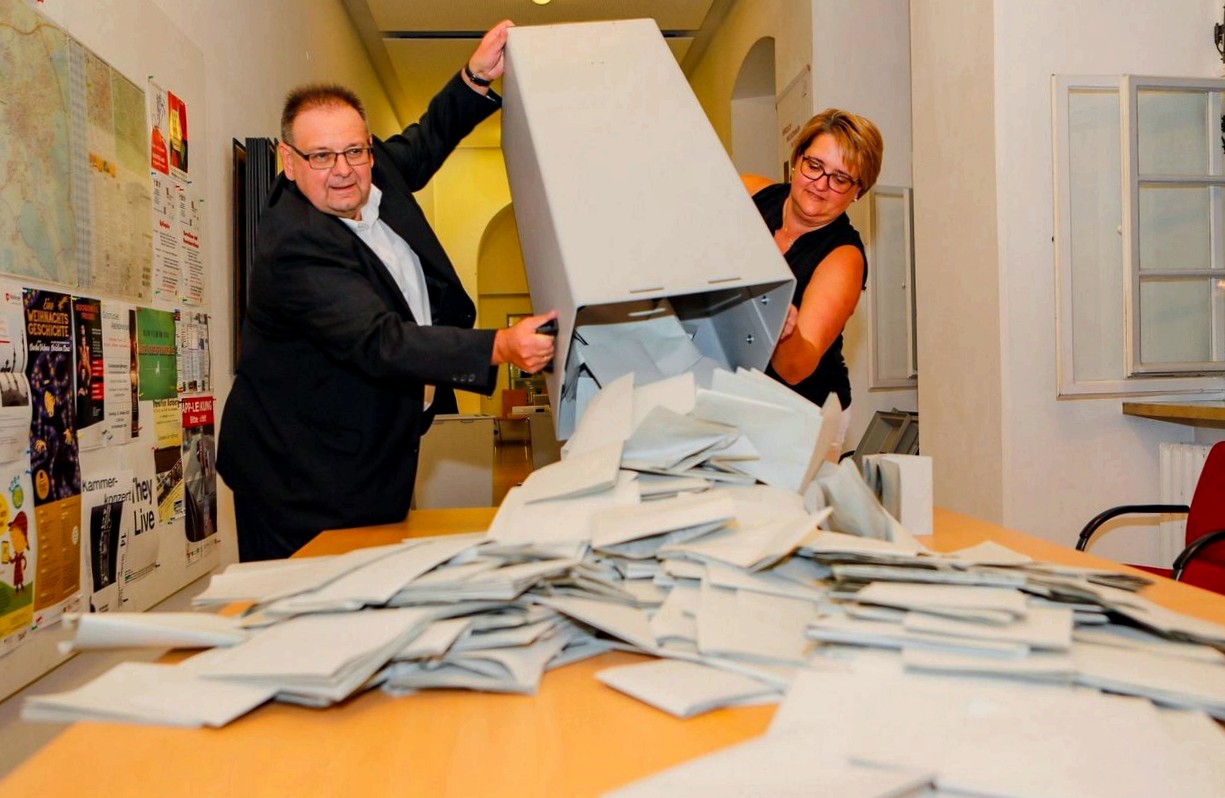
If more citizens go to the polls again, that’s a very welcome development in a democratic sense. Admittedly, the administration is facing some challenges, as social and public order officer ralf haupt made clear in his youngest meeting presentation to the city council.
In particular, the long lines in front of the polling stations for the state parliament and district parliament elections on 14. October 2018 had prompted the CSU parliamentary group to propose that the conduct of elections be better organized in the future. In particular, by "setting up more polling stations and thus reducing both the queues at polling stations and the distances to the nearest polling station" were shortened.
This is now being taken into account by the electoral office, which is part of the public order department. Although the number of polling stations for the 2019 european elections will remain unchanged at 33 polling stations and 28 postal stations, experience has shown that voter turnout is not quite as high here (in 2014, 40 percent of eligible voters took part), the number of polling stations will remain unchanged. For the 2020 municipal elections (expected to be held on 15. March), however, it is planned to create 41 polling stations and about 30 by-election stations. The city council has now unanimously passed a resolution to this effect. This means that the estimated costs of running this election, including refreshment allowances (the term used to describe the compensation paid to volunteer election workers), rent and insurance, amount to just under 39,000 euros.
"However, it is becoming increasingly difficult to find sufficient and, above all, suitable voluntary staff for the elections", DECLARED HEAD. Against the background of the two-day election evaluation, it is necessary that the election chairmen and their deputies are not exchanged. For these positions, city employees, of whom a total of 540 are active as election workers, had to be deployed.
However, this is still not enough, which is why the city of bamberg now wants to aggressively recruit volunteer election workers. At the same time, the city council is reviewing the extent to which personnel from the city’s subsidiaries, the municipal utility company and the social foundation, could be involved in handling the election events.
CSU caucus leader helmut muller explained that he had to wait 38 minutes in the state election before he could cast his vote. "This rush was hardly foreseeable, therefore the election office is exculpated", says muller. After all, voter turnout had risen by ten percent compared to the 2013 state elections. But older citizens in particular had also complained about the long distances to the polling stations.
Wolfgang grader (GAL) pointed out that his group had also made a motion in this direction months ago. The high voter turnout is pleasing, but the evaluation of the ballots, which are particularly rough in municipal elections, takes time. He suggested, as did dieter weinsheimer (bamberg alliance), that more booths be created in the existing polling stations. This would also be a better way to deal with the onslaught.
Klaus stieringer praised the pragmatic approach to the 2018 state elections: everyone who had queued outside was invited into the town hall so that they could still cast their vote after 6 p.M.
The SPD faction leader stated: "we expect a high voter turnout in the municipal elections. But everyone who liked elections will also be able to vote."